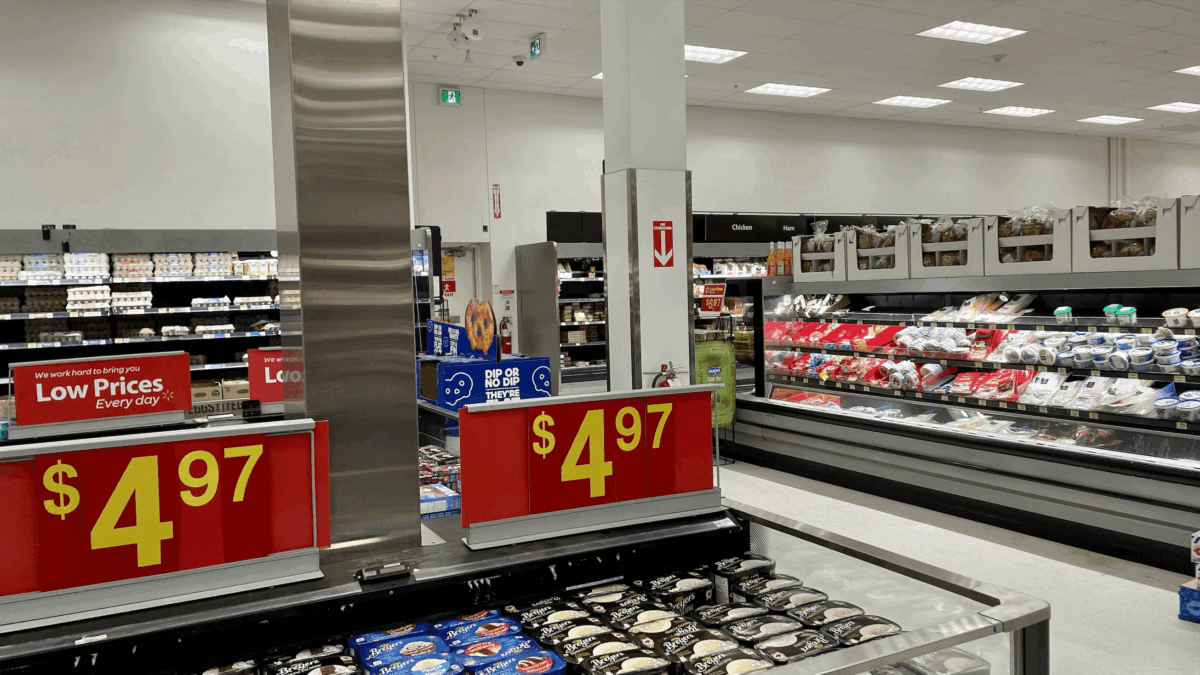Between July 2019 and July 2023, the price of food has gone up by 44 per cent. At least one expert says this may force students at universities and colleges to choose between tuition and a balanced diet.
An analysis of Statistics Canada’s Consumer Price Index shows fats, oils, meat, eggs, produce and bakery products have seen the greatest price increases compared to all items in the last four years.
Vivian Hoffmann, a professor at Carleton University specializing in economic regulation policy to improve health, says food inflation has two main effects on consumer behaviour.
First, people make substitutions for particularly expensive items, such as fats and oils. Second, consumers cut back if an item’s price is on par with general inflation but is still relatively more expensive.
“Meat’s relatively expensive, so you might still get a decrease in meat consumption because of the income effect,” Hoffmann said. “So, people are just effectively poorer.”
Students find meat difficult to access
A 2017 study suggests university students are more susceptible to food insecurity. At the University of British Columbia, for example, 42 per cent of students reported food insecurity, the report shows.
In addition to the high price of food, many students are struggling to find work.
Statistics Canada’s Labour Force Index indicates students are one of the hardest hit groups by unemployment.
In September 2023, 15-to-24 year olds in Ontario were unemployed at a rate of 11.7 compared to all of Canada where the rate was 10.5 per cent. The overall Canadian unemployment rate was 5.5 per cent.
“Meat has become incredibly expensive,” said second-year Carleton psychology student Mikayla Carter. “I now can only afford to buy it when it goes on sale and even then the prices are still quite outrageous.”
Despite the challenges, Carter is still finding ways to add meat to her diet.
“I have also begun to eat a lot more chicken than any other meat source as it has become one of the most affordable meat products,” she said.
Carter says she hopes food prices will decrease so she can put more of her money toward tuition and other necessities.
Hoffmann says students may make substitutions and cut essential food groups which can negatively impact their health.
Carter is one of these students.
“I have started to buy only the necessities when it comes to food,” she said. “Unfortunately, this means buying less fresh produce and more frozen foods as they are not only cheaper but can last longer.”
Cutting out food groups can lead to problems, Hoffman warns.
“You want to have a balanced diet,” Hoffmann explained. “It’s going to improve your ability to focus. It’s going to improve your gut health. When you aren’t eating properly, it’s going to affect your mood and your performance.”
Similarly, American research suggests food insecurity among university students harms health and academic performance.
Even plant-based options are pricey
According to Hoffmann, a vegetarian diet may be a cheaper option than eating meat.
However, Kelly Trojanowski, a vegetarian since she was 15, says being vegetarian is costing her more than it used to.
“I feel like everything's gone up,” said Trojanowski, a third-year neuroscience and biology student at Carleton. “My veggie meat is more expensive than it used to be.”
Along with meat, the price of meat alternatives has also increased.
According to a 2022 Dalhousie Agri-Food Analytics Lab, meat alternatives are 38 per cent more expensive than animal-based equivalents per 100 grams, with Ontario having the highest prices.
Because of this, Trojanowski gets her protein from legumes and nuts.
“I'm a tofu and bean person,” she said. “I don't want to spend $10 on four veggie burgers if I could buy a brick of tofu and then it's the same amount of meals.”
Typically, Trojanowski says she spends $60 to $70 per week on groceries. She says she shies away from buying snacks, ready-made meals and processed foods due to the expensive price tag.
Hoffmann, who specializes in policy to tackle food insecurity in low-income countries, says it is alarming to see growing rates in Canada.
Like most students, Trojanowski’s secret to saving money is buying from the sale section and buying frozen. However, even then, she says she wonders how much she is actually saving.
“I'm not even saving that much money, but it's fine,” she said. “I'm doing it for the animals and the planet, not really for my bank account.”




